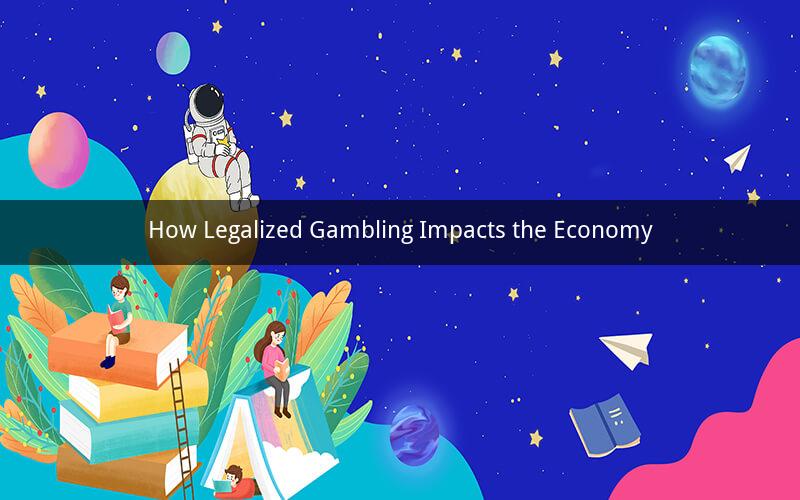
The introduction of legalized gambling in various regions has sparked intense debates about its economic implications. This essay delves into the ways in which gambling affects the economy, highlighting both positive and negative impacts. By examining the economic benefits and drawbacks, we can gain a better understanding of the complex relationship between gambling and the economy.
Positive Economic Impacts of Legalized Gambling
1. Job Creation and Economic Growth
One of the most apparent benefits of legalized gambling is the creation of jobs. Casinos, racetracks, and other gambling establishments require a large workforce, from dealers and pit bosses to security personnel and management staff. These jobs help to reduce unemployment rates and stimulate economic growth in the local community.
2. Tax Revenue
Legalized gambling generates significant tax revenue for governments. Casino revenues, in particular, are often subject to high taxes, which can be used to fund public services, infrastructure development, and social welfare programs. This additional revenue can also reduce the burden on other forms of taxation, such as income or sales taxes.
3. Attraction of Tourists
Gambling destinations can attract tourists from around the world, generating additional revenue from hotel accommodations, dining, and entertainment. This influx of visitors can boost the local economy, creating jobs and enhancing the region's reputation as a tourism hub.
4. Infrastructure Development
Legalized gambling can lead to infrastructure improvements in the areas where casinos and racetracks are established. These improvements include new roads, hotels, and entertainment venues, which can benefit both tourists and local residents.
Negative Economic Impacts of Legalized Gambling
1. Social Costs
The negative impacts of gambling are often overlooked, but they are significant. Problem gambling can lead to financial ruin, addiction, and mental health issues, all of which have costly consequences for individuals and society. These social costs include healthcare expenses, law enforcement costs, and the loss of productivity due to gambling-related problems.
2. Crime and Corruption
Legalized gambling has been linked to an increase in crime rates and corruption. Casinos can become hotbeds for money laundering, organized crime, and corruption, which can have detrimental effects on the economy and public trust.
3. Negative Impact on Other Industries
Legalized gambling can have a negative impact on other industries, such as retail, hospitality, and entertainment. Casinos and racetracks often compete with these industries for customers, which can lead to a decrease in their profitability.
4. Government Regulation Challenges
Governments face numerous challenges when regulating the gambling industry. Ensuring compliance with gambling laws, preventing money laundering, and addressing the social costs of gambling can be difficult and expensive.
Frequently Asked Questions about Legalized Gambling and the Economy
1. How does legalized gambling impact local employment?
Legalized gambling can lead to the creation of numerous jobs in the areas where casinos and racetracks are established. This can help reduce unemployment rates and stimulate economic growth.
2. Can legalized gambling increase tax revenue for governments?
Yes, legalized gambling can generate significant tax revenue for governments, which can be used to fund public services and infrastructure development.
3. Is legalized gambling a tourist attraction?
Legalized gambling destinations can attract tourists from around the world, generating additional revenue from hotel accommodations, dining, and entertainment.
4. What are the negative economic impacts of legalized gambling?
The negative economic impacts of legalized gambling include social costs associated with problem gambling, increased crime rates and corruption, and the potential for negative competition with other industries.
5. How can governments address the negative economic impacts of legalized gambling?
Governments can address the negative economic impacts of legalized gambling by implementing strict regulations, investing in education and prevention programs, and ensuring that the social costs are properly accounted for in their budgets.
In conclusion, the economic impact of legalized gambling is complex and multifaceted. While it can bring about positive outcomes such as job creation, increased tax revenue, and tourism, it also has the potential to create social and economic challenges. Understanding these complexities is essential for governments and communities considering the introduction or expansion of legalized gambling.